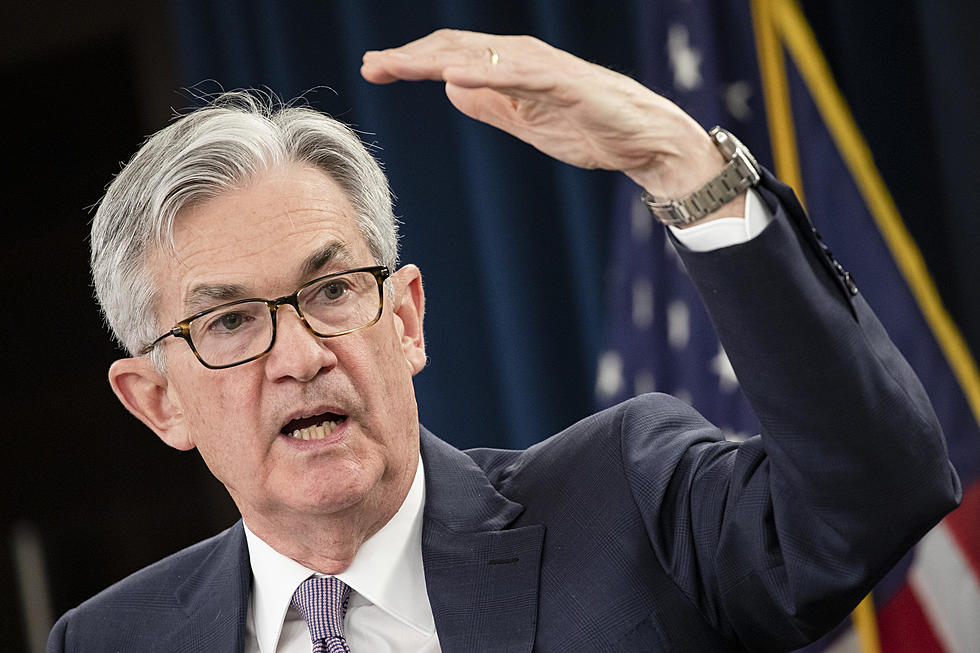
Walmart Warns That Higher Tariffs Will Mean Higher Prices
NEW YORK (AP) — Walmart warned on Thursday that higher tariffs on imports from China will mean higher prices at the low price leader.
The comments came after the nation's largest retailer reported its best sale performance at its established U.S. namesake stores for the fiscal first quarter in nine years.
"We're monitoring the tariff discussions and are hopeful that an agreement can be reached," said Chief Financial Officer Brett Biggs. But he told reporters, "Increased tariffs will lead to increased prices for our customers."
Walmart declined to comment on what type of price hikes shoppers could expect and which products would get the biggest increases. But the specter of higher prices was also echoed by Macy's CEO Jeff Gennette, who told investors Wednesday that if a fourth round of tariffs take effect, that could mean higher retail prices for both store label and national brands. Target, J.C. Penney and other major retailers will be reporting results in the next few days and should shed more light on the issue.
Walmart, Macy's and other general merchandise stores have been left largely unscathed by the first several rounds of tariffs since they focused more on industrial and agricultural products. But that changed last week when the Trump administration slapped 25% tariffs on imports like furniture. The administration wants to extend the 25% tariffs to practically all Chinese imports not already hit with levies including toys, shirts, household goods and sneakers. That's roughly $300 billion worth of products on top of the $250 billion targeted earlier
Walmart and others have benefited from a continued strong economy and low unemployment, but shoppers continue to look for deals. In particular, Walmart's main customers who live paycheck to paycheck would be particularly sensitive to any price increases. Walmart said it's working with its manufacturing partners to mitigate the impact but declined to comment further.
Such looming extra costs come as Walmart is investing more in its business to compete with online leader Amazon in a fight to see who can get packages to customers faster.
Walmart launched free next-day delivery on its most popular items this week in Phoenix and Las Vegas. It plans to roll out next-day delivery to most of the country by year-end, covering 220,000 popular items from diapers to toys, with a minimum order of $35. Walmart has said the costs for next-day delivery are lower versus two-day service because eligible items will come from a single fulfillment center located closest to the customer. This means orders will ship in one box, or in as few as possible, unlike two-day deliveries that come in multiple boxes from multiple locations.
The announcement was made two weeks after Amazon said would be upgrading its free shipping for members from the standard two-day delivery, to one day.
Walmart, based in Bentonville, Arkansas, said that U.S. sales at stores opened at least a year rose 3.4% during the fiscal first quarter.
U.S. e-commerce business rose 37%, helped by strong sales in fashion and home goods. Walmart's online growth was also fueled by its continued expansion of online grocery services, including curbside pickup and home delivery.
Walmart has about 2,450 stores that offer free grocery pickup for customers who shop online. It also has nearly 1,000 stores that offer same-day grocery delivery. The company said it was on track to offer same-day grocery delivery from 1,600 stores, while also offering grocery pickup from 3,100 stores by year-end.
Walmart's Sam's Clubs posted a 0.3% increase in same-store sales, excluding fuel.
Walmart is also testing innovative new ways to cut costs and make workers more efficient. It officially opened a lab in a Neighborhood Store, a smaller grocer concept, in Levittown, New York, that has thousands of cameras that mind the store and help keep track of items that need to be replenished. It's hoping to scale some of the technology to other stores.
The company reported first-quarter net income of $3.84 billion, or $1.33. Earnings, adjusted for non-recurring gains, came to $1.13 per share. That beat per-share earnings projections by 11 cents, according to a survey of industry analysts by Zacks Investment Research.
Revenue was $123.93 billion, missing forecasts for $125.33 billion.
Walmart Inc. stuck to its outlook for the year. Shares rose $3.34, or more than 3%, to $103.22 in morning trading.
More From K2 Radio









